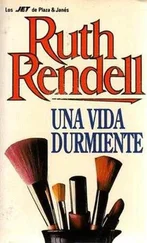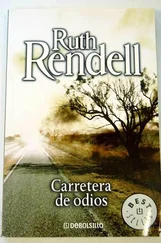
From childhood’s hour I have not been
As others were; I have not seen
As others saw; I could not bring
My passions from a common spring.
From the same source I have not taken
My sorrow; I could not awaken
My heart to joy at the same tone;
And all I loved, I loved alone.
Then—in my childhood, in the dawn
Of a most stormy life—was drawn
From every depth of good and ill
The mystery which binds me still …
And the cloud that took the form
(When the rest of Heaven was blue)
Of a demon in my view.
Edgar Allan Poe
The cellar was divided into rooms. Each of these caverns except the last of them was cluttered with the rubbish which usually encumbers the cellars of old houses: broken bicycles, old mould-grown leather cases, wooden crates, legless or armless chairs, cracked china vessels, yellowing newspapers bundled up with string, and in heaps, the nameless unidentifiable cylinders and tubes and rods and rings and spirals of metal which once, long ago, bolted or screwed or linked something on to something else. All this rubbish was coated with the thick black grime that is always present in cellars. The place smelt of soot and fungus.
Between the junk heaps a passage had been cleared from the steps to the first doorless doorway, on to the second doorway and thence to the bare room beyond. And in this room, unseen as yet in the pitch blackness, the figure of a woman leaned against the wall.
He came down the steps with a torch in his hand. He switched on the torch only when he had closed and bolted the door behind him. Then, led by its beam, he picked his way softly along the path that was hedged by rubbish. There was no sound but the shuffle of his slippers on the sooty stone, yet as he entered the second room he told himself he had heard ahead of him an indrawn breath, a small gasp of fear. He smiled, though he was trembling, and the hand which held the torch shook a little.
At the second doorway he raised the beam and let it play from the lower left-hand corner of the room upwards and then downwards, moving it languidly towards the right. It showed him pocked walls, a cracked ceiling hung with cobwebs. It showed him old, broken, long-disused electric wires, a trickle of viscous water running from the fissure in a split brick, and then, playing in a downward arc, it showed him the woman’s figure.
Her white face, beautiful, unmarked by any flaw of skin or feature, stared blankly back at him. But he fancied, as the torch shivered in his hand, that she had cringed, her slim body in its short black dress pressing further into the wall which supported it. A handbag was hooked over one of her arms and she wore scuffed black shoes. He didn’t speak. He had never known how to talk to women. There was only one thing he had ever been able to do to women and, advancing now, smiling, he did it.
First he rested the torch on a brick ledge at the level of his knees so that she was in shadow, so that the room took on the aspect of an alley into which a street lamp filters dimly. Then he approached her, paralysed as she was, and meeting no resistance—he would have preferred resistance—he closed his hands on her throat.
Still there was no resistance, but what happened next was almost as satisfactory. His hands squeezed till the fingers met, and as forefinger pressed against thumb, the beautiful white face changed, crumpled, twisted in agony and caved in. He gave a grunting gasp as her body fell sideways. He released his hold, swaying at the earthquake inside him, and he let her fall, prone and stiff, into the footmarked soot.
It took him a few minutes to recover. He wiped his hands and the corners of his mouth on a clean white handkerchief. He closed his eyes, opened them, sighed. Then he picked up the plastic shop window model and set her once more against the wall. Her face remained caved in. He wiped the dust from it with his handkerchief and, inserting his fingers through the split in her neck, a split which grew wider each time he murdered her, pushed out sunken nose and crumpled eyes and depressed chin, until she was blank and beautiful again.
He straightened her dress and replaced the handbag, which had come unhooked, once more on her arm. She was ready to die for him again. A week, a fortnight might go by, but she would wait for him. It was good, the best thing in his life, just knowing she was there, waiting till next time …
1
————
The houses were warrens for people, little anthills of discomfort. Almost each one, built to accommodate a single family, had been segmented into four or five separate units. Ungracious living was evinced by a row of doorbells, seven in an eight-roomed house, by the dustbins that had replaced rose bushes in the front gardens, by the slow decay that showed in a boarded window, a balcony rail patched with chicken wire, a latchless gate that tapped ceaselessly, monotonously, against its post.
On the odd-numbered side of Trinity Road the houses were tall and with high basements so that the flights of steps mounting to their front doors seemed to assault the very hearts of these houses like engines of siege. They faced terraces of brown brick, humbler-looking and only three floors high. Outside number 142 was parked a large shiny car, a green Jaguar. A toy dog that nodded its head at the slightest vibration rested inside the rear window, and hanging from the centre of the windscreen was a blond doll in a two-piece bathing suit.
The car looked incongruous in Trinity Road, along which such vehicles generally passed without stopping. Just inside the low wall that bounded the front garden of number 142 grew two lopped-off lime trees, stumps bearing on their summits excrescences of leathery leaves that gave them the look of prehistoric vegetation. Behind them was a small patch of brown turf. On the ground floor was a bay window, curtained in orange; above that two windows curtained in floral green—frayed curtains these, with a rent in one of them; on the top floor brown velvet curtains which, parted, disclosed a white frilly drapery like the bodice of a woman’s nightgown.
A shallow flight of steps, of pink granite but grazed instead of polished, led to a front door whose woodwork might have been of any colour, green, brown, grey, it was so long since it had been painted. But the glass panels in it kept the dim glow they had always had, rubber plant green and the dull maroon of sour wine, the kind of stained glass found in chapel windows of the last century.
There were five bells, each one but the lowest labelled. A psychologist would have learned much from the varied and distinctive labelling of these bells. The topmost bore below it a typewritten slip, framed in a plastic container clearly designed for this purpose, which stated: Flat 2, Mr. A. Johnson. Beneath this and the next bell, on a scrap of card secured with adhesive tape, was scrawled in a bold reckless hand: Jonathan Dean. While under the third bell two labels seemed to quarrel with each other for pre-eminence. One was of brown plastic with the letters on it in relief: Flat 1, B. Kotowsky. Its rival, jostling it, stuck to the corner of it with a gob of glue, announced in felt-tipped pen: Ms. V. Kotowsky. Last came a frivolous oval of orange cardboard on which, under a pair of Chinese characters done with a brush, the caller might read: Room 1, Li-li Chan.
The space beneath the lowest bell was vacant as was Room 2 with which it communicated.
Between the door of the vacant room and the long diagonal sweep which was the underside of the staircase, a shabby windowless space, Stanley Caspian, the landlord, had his office. It was furnished with a desk and two bentwood chairs. On top of the shelves, bristling with papers, which lined the rear wall, stood an electric kettle and a couple of cups and saucers. There was no other furniture in the hall but a rectangular mahogany table set against the banisters and facing the ground floor bathroom.
Читать дальше












